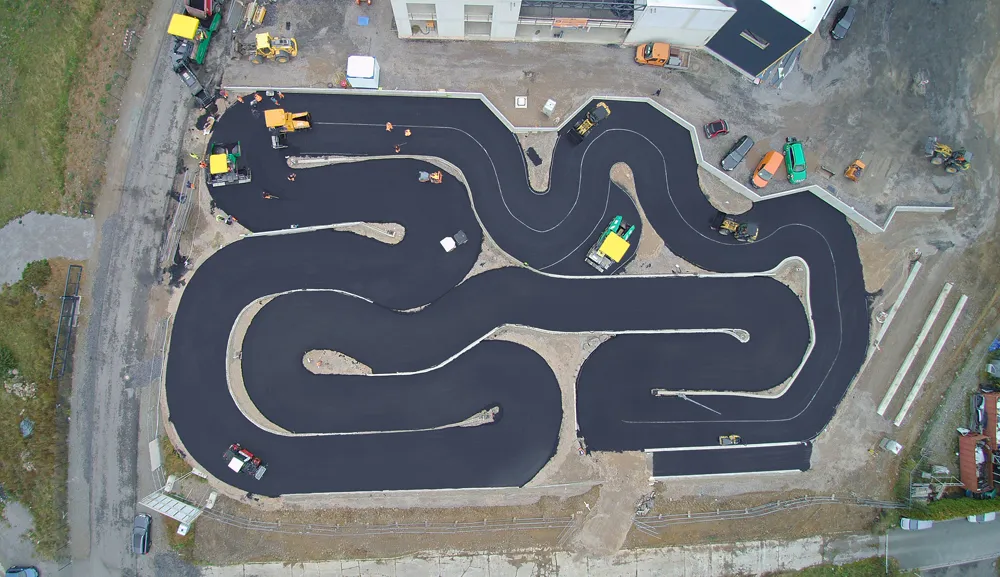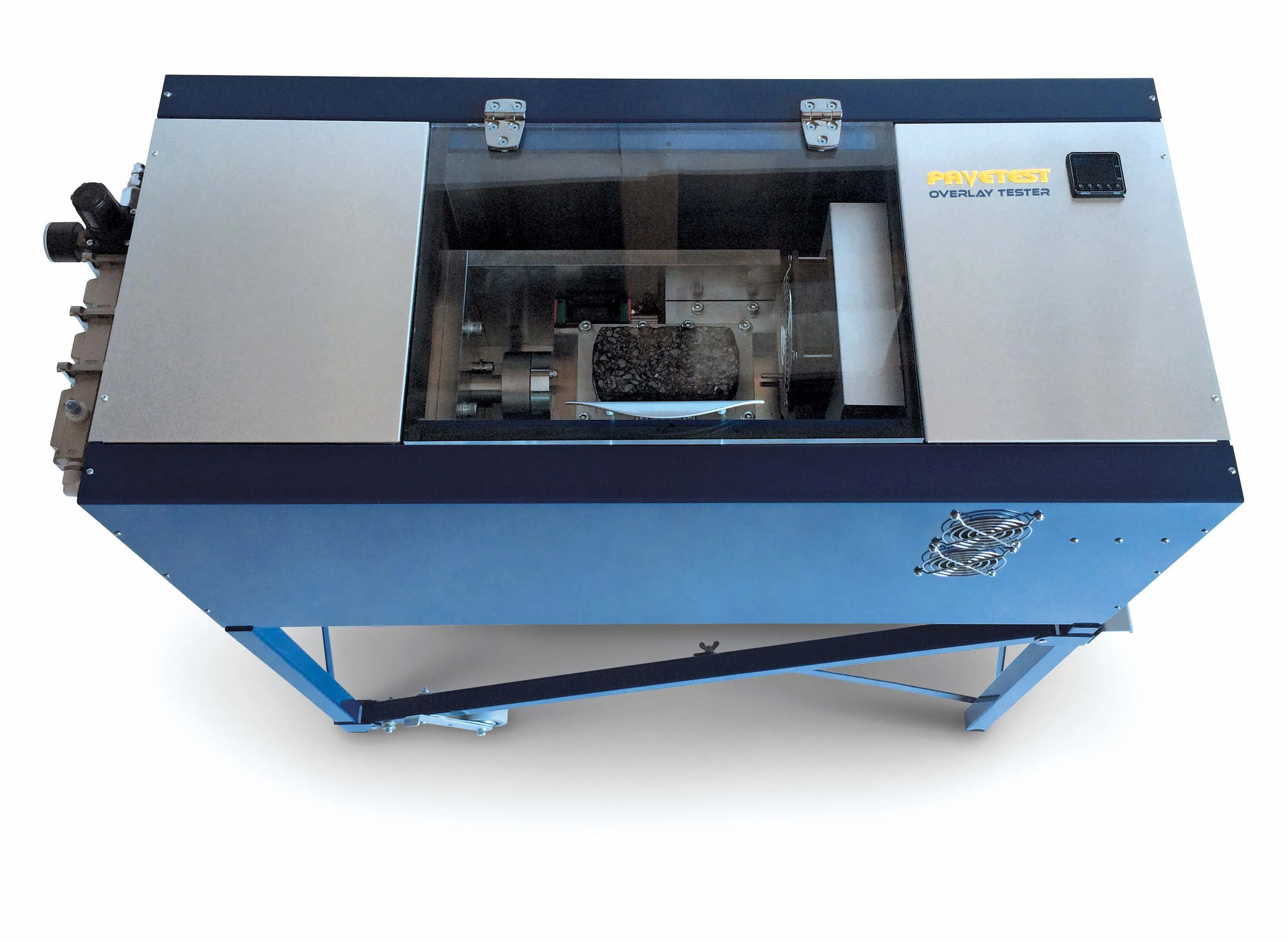Spanish contractor Sorigué, the first to use the SUPER 1800-3i SprayJet from Vögele, has pioneered paving thin overlays and the development of new mixes.
The company won the contract for rehabilitating the surface course of the 3km-long dam, 10m-wide promenade in the Catalonian port city of Tarragona. Sorigué’s idea was to overlay the existing surfacing with a thin layer applied to a spray seal of polymer-modified bitumen.
The spray seal prevents water penetrating inside the structure – a major advant
March 21, 2016
Read time: 3 mins
Spanish contractor Sorigué, the first to use the SUPER 1800-3i SprayJet from 1194 Vögele, has pioneered paving thin overlays and the development of new mixes.
The company won the contract for rehabilitating the surface course of the 3km-long dam, 10m-wide promenade in the Catalonian port city of Tarragona. Sorigué’s idea was to overlay the existing surfacing with a thin layer applied to a spray seal of polymer-modified bitumen.
The spray seal prevents water penetrating inside the structure – a major advantage for a dam promenade which is regularly flooded with seawater because of strong winds and heavy seas. Sorigué says the process is cost-effective because the thinner layer significantly reduces milling and material costs. There is no need for costly adjustments and the installation of new curbs. It is also time-saving because spraying the high-quality polymer-modified bitumen and paving the surface course can take place in a single pass.
Lastly, pavement rehabilitated by paving thin overlays are exceedingly durable. The sprayed binder forms a continuous film on the lower layer, effectively sealing the road structure against water and significantly extending the service life of the new pavement.
The job was done in less than two days.
In order to produce a particularly high-quality bond between layers when overlaying the surface course, Sorigué used an emulsion called ELASTAM. It was developed by the company itself and contains 65% polymer-modified bitumen and 35% water. The polymer-modified emulsion guarantees very rapid “breaking” so that the film of emulsion can be overlaid with hot asphalt immediately after spraying.
The SprayJet module ensures that the emulsion is sprayed in the right quantity. Unlike the case when using conventional methods, job site vehicles and paver do not drive over the film of emulsion, so that it remains intact over the full width.
The set rate of spread was relatively high, at 1.1kg/m². “Using a high rate of spread produces a reliable tack coat on all bases and ensures a strong bond between the layers,” said Alfredo Bobis, product developer for Sorigué. “It also allows more bitumen to be mixed into the asphalt retroactively. All this extends the service life of the new surfacing in line with demands for sustainable road construction.”
The Dash 3 SprayJet module and automatic functions calculates optimum pave speed on the basis of the installed nozzle size and the selected rate of spread, guaranteeing perfect application of the emulsion.
Operation of the SprayJet module has been consistently integrated into the ErgoPlus 3 operating concept. The central element is the colour touch screen, positioned on the emulsion tank so it is easily be seen and reached by the paver operator. All preparatory, spraying and cleaning functions can be selected and started in a few swift moves via various menus. Settings for the work flows are mainly performed automatically. This assures the machine’s availability and long-term value and prevents potential operator errors.
The company won the contract for rehabilitating the surface course of the 3km-long dam, 10m-wide promenade in the Catalonian port city of Tarragona. Sorigué’s idea was to overlay the existing surfacing with a thin layer applied to a spray seal of polymer-modified bitumen.
The spray seal prevents water penetrating inside the structure – a major advantage for a dam promenade which is regularly flooded with seawater because of strong winds and heavy seas. Sorigué says the process is cost-effective because the thinner layer significantly reduces milling and material costs. There is no need for costly adjustments and the installation of new curbs. It is also time-saving because spraying the high-quality polymer-modified bitumen and paving the surface course can take place in a single pass.
Lastly, pavement rehabilitated by paving thin overlays are exceedingly durable. The sprayed binder forms a continuous film on the lower layer, effectively sealing the road structure against water and significantly extending the service life of the new pavement.
The job was done in less than two days.
In order to produce a particularly high-quality bond between layers when overlaying the surface course, Sorigué used an emulsion called ELASTAM. It was developed by the company itself and contains 65% polymer-modified bitumen and 35% water. The polymer-modified emulsion guarantees very rapid “breaking” so that the film of emulsion can be overlaid with hot asphalt immediately after spraying.
The SprayJet module ensures that the emulsion is sprayed in the right quantity. Unlike the case when using conventional methods, job site vehicles and paver do not drive over the film of emulsion, so that it remains intact over the full width.
The set rate of spread was relatively high, at 1.1kg/m². “Using a high rate of spread produces a reliable tack coat on all bases and ensures a strong bond between the layers,” said Alfredo Bobis, product developer for Sorigué. “It also allows more bitumen to be mixed into the asphalt retroactively. All this extends the service life of the new surfacing in line with demands for sustainable road construction.”
The Dash 3 SprayJet module and automatic functions calculates optimum pave speed on the basis of the installed nozzle size and the selected rate of spread, guaranteeing perfect application of the emulsion.
Operation of the SprayJet module has been consistently integrated into the ErgoPlus 3 operating concept. The central element is the colour touch screen, positioned on the emulsion tank so it is easily be seen and reached by the paver operator. All preparatory, spraying and cleaning functions can be selected and started in a few swift moves via various menus. Settings for the work flows are mainly performed automatically. This assures the machine’s availability and long-term value and prevents potential operator errors.









